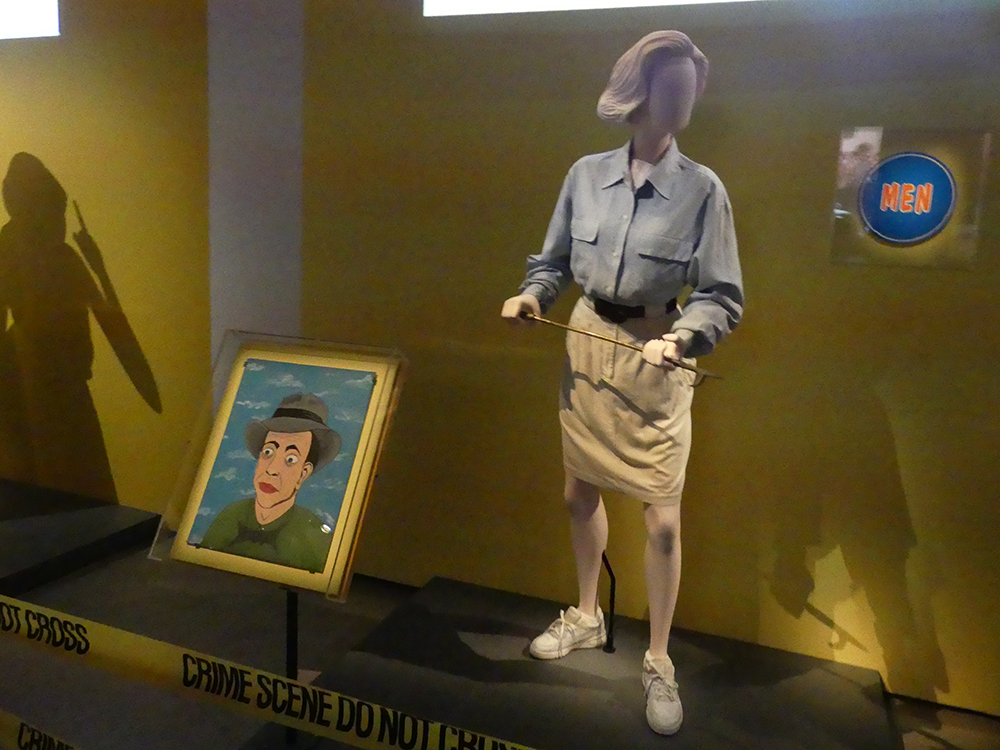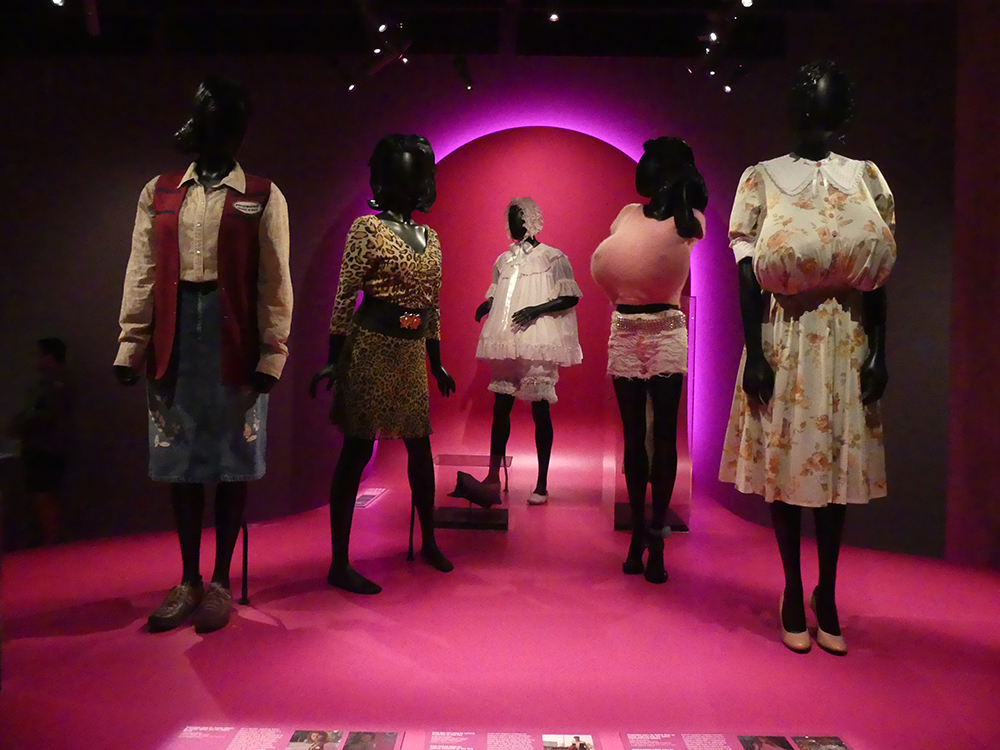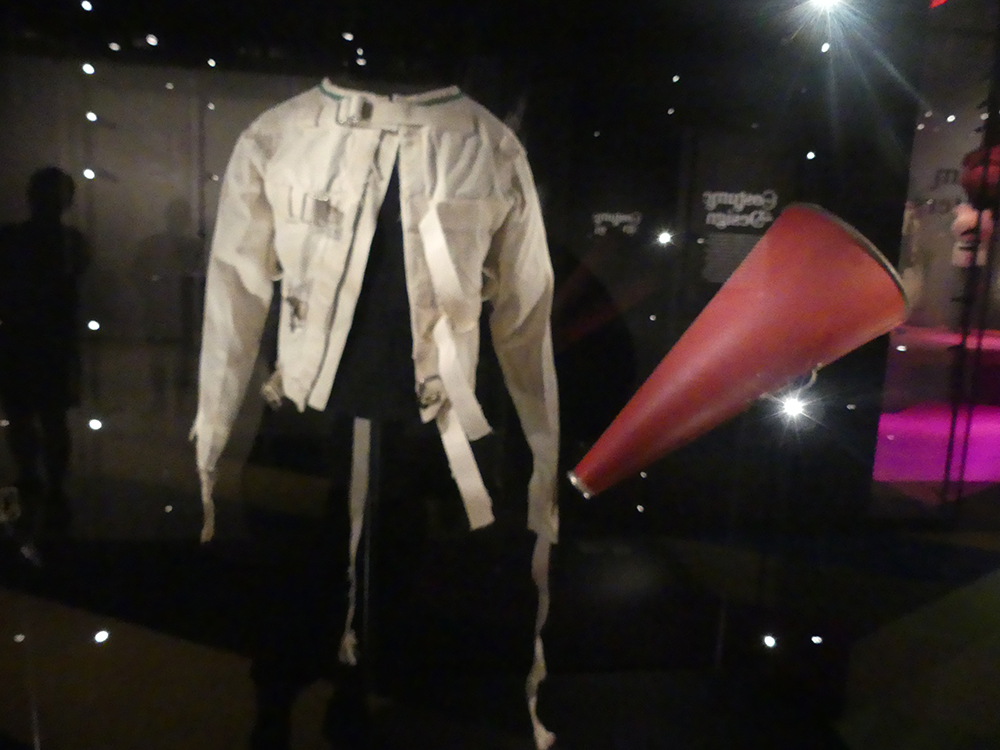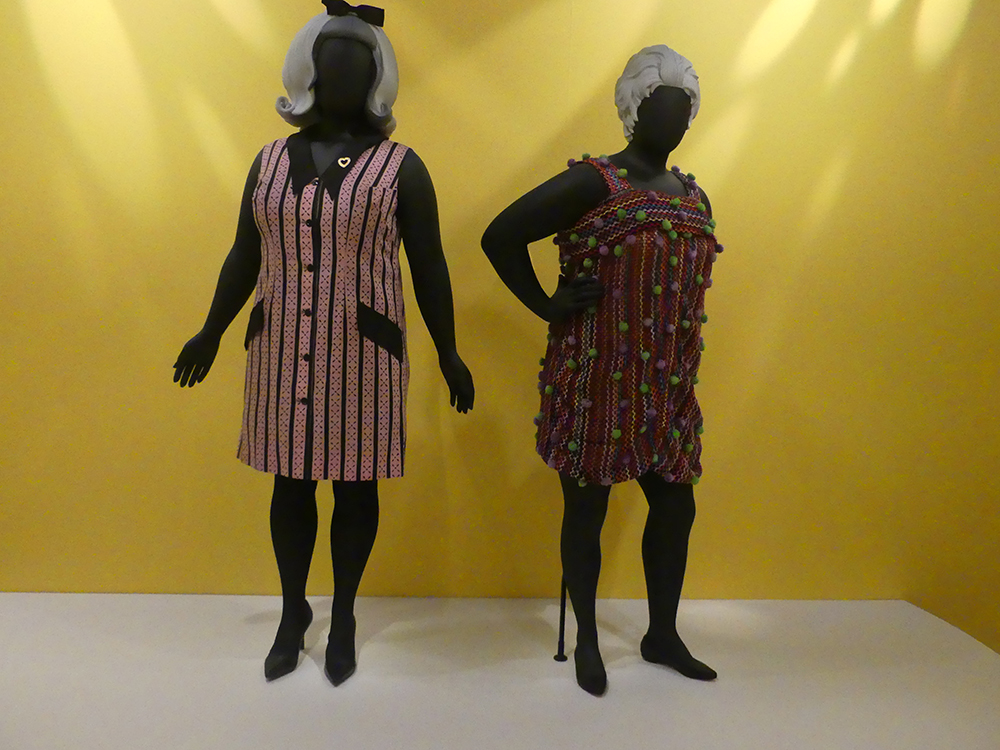LA-Event - The Academy Museum of Motion Pictures : Celebrating the Subversive Genius of John Waters with Pope of Trash
By Mulder, Los Angeles, The Academy Museum of Motion Pictures, 29 july 2024

The Academy Museum of Motion Pictures in Los Angeles has unveiled a major exhibition titled John Waters: Pope of Trash, which stands as the first comprehensive museum retrospective dedicated to the life and work of the iconic filmmaker John Waters. Known for his unapologetically transgressive films that have both shocked and delighted audiences for decades, Waters' work is celebrated in this exhibition that opened in September 2023 and will run through August 4, 2024.
Curated by Dara Jaffe and Jenny He, the exhibition offers an immersive and detailed exploration of Waters' six-decade-long career, tracing his evolution from a fringe underground filmmaker to a celebrated figure in mainstream cinema. The title of the exhibition, Pope of Trash, reflects the affectionate moniker given to Waters, who has always embraced the outrageous, the subversive, and the taboo in his work. From the moment visitors enter the exhibition, they are greeted with a recreated church-like environment, a whimsical nod to Waters' Catholic upbringing and his history of premiering films in unconventional venues, including Baltimore churches.

The exhibition is a treasure trove for both die-hard fans of Waters and those new to his work. It features more than 400 objects, including handwritten scripts, original costumes, props, posters, and set designs from his films. Among the highlights are the infamous pink flamingo lawn ornaments from Pink Flamingos (1972), the purple tutu worn by Jean Hill in Desperate Living (1977), and the costumes from Hairspray (1988) and Cry-Baby (1990). These artifacts not only showcase the unique aesthetic of Waters' films but also offer a glimpse into the behind-the-scenes processes of independent filmmaking.
A significant portion of the exhibition is devoted to Waters' early work, where his penchant for the absurd and the grotesque first took root. Films like Multiple Maniacs (1970) and Desperate Living exemplify his fearless approach to filmmaking, with their outrageous characters and scenarios that pushed the boundaries of taste and decency. These films, initially dismissed as trash by critics, have since been reevaluated as groundbreaking works of queer cinema that challenged societal norms long before it was fashionable to do so.

In addition to the physical objects on display, the exhibition also offers a multi-sensory experience. Visitors can watch clips from Waters' films, listen to his commentary, and even engage with an interactive app that allows them to style themselves as characters from his movies. There is also a dedicated space for fan art, underscoring the deep and enduring connection Waters has with his audience.
One of the exhibition's most notable features is its exploration of Waters' influence on pop culture and his transition from a cinematic outsider to a celebrated icon. This journey is illustrated through a collection of international film posters, a montage of Waters' numerous cameo appearances in television and film, and personal anecdotes from the filmmaker himself. These elements help to contextualize Waters' work within the broader landscape of American cinema and highlight his lasting impact on the industry.

The exhibition is accompanied by a film series that runs through October 2023, offering screenings of Waters' most famous works, including Eat Your Makeup (1968), Serial Mom (1994), Multiple Maniacs, and Pink Flamingos. Each screening is paired with live commentary from Waters or special guests, providing fans with a unique opportunity to hear directly from the filmmaker about his creative process.
The Academy Museum's decision to host this retrospective is a testament to Waters' importance as a cultural figure and his influence on generations of filmmakers and artists. The exhibition not only celebrates his contributions to cinema but also invites visitors to reconsider what makes a film valuable, challenging the notion of good and bad taste.

For those unable to visit in person, the museum has also published a hardcover catalogue that serves as a companion to the exhibition, complete with essays, interviews, and rare photographs. Additionally, the museum's website offers virtual tours and detailed information about the exhibition, making it accessible to a global audience.
John Waters: Pope of Trash is not just a celebration of a singular artist; it is an exploration of the power of cinema to provoke, entertain, and inspire. It is a fitting tribute to a man whose work has always been about more than just movies—it's about pushing boundaries, questioning norms, and above all, having fun while doing it

You can discover our photos in our Flickr page
Photos and video : Boris Colletier / Mulderville

